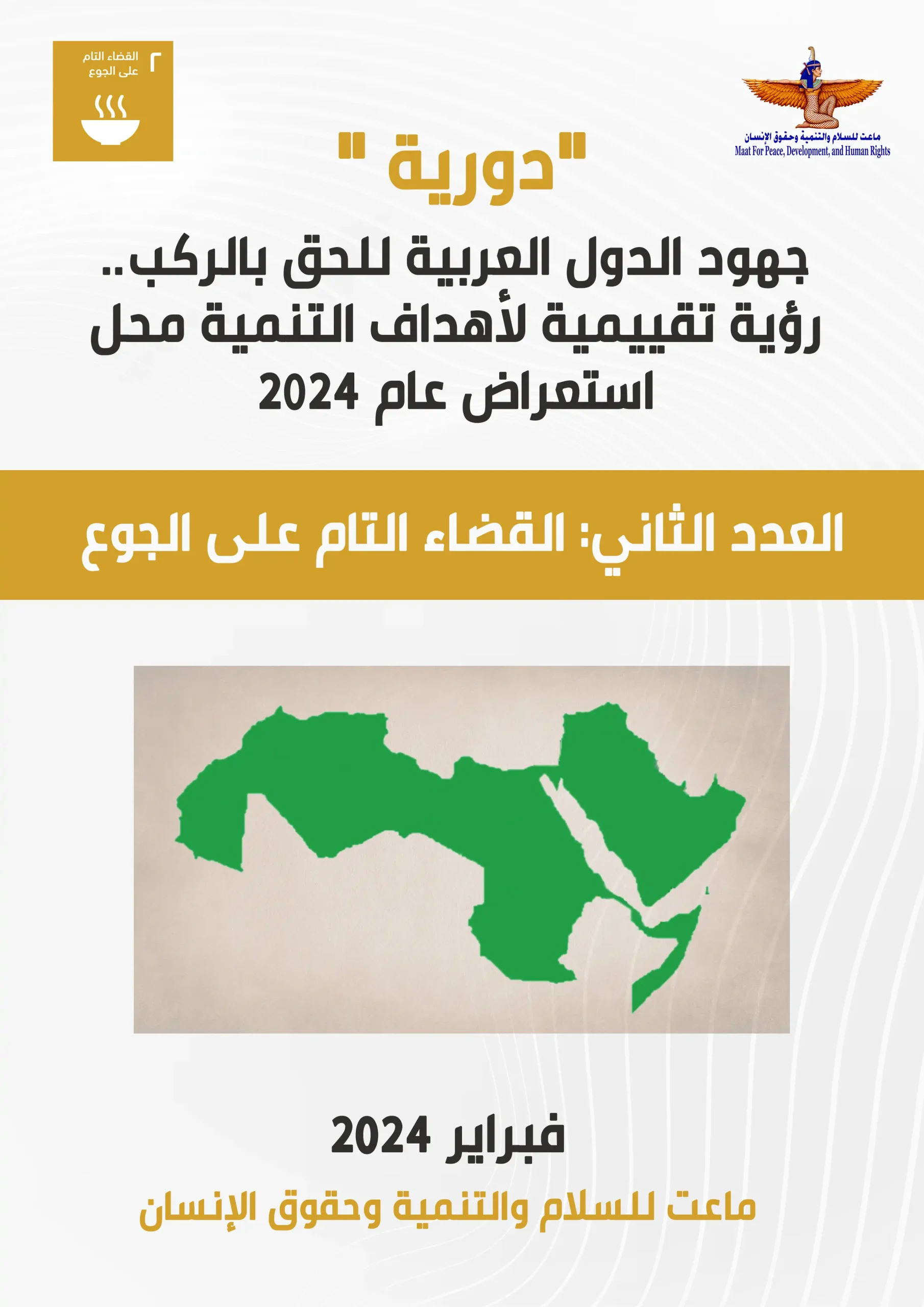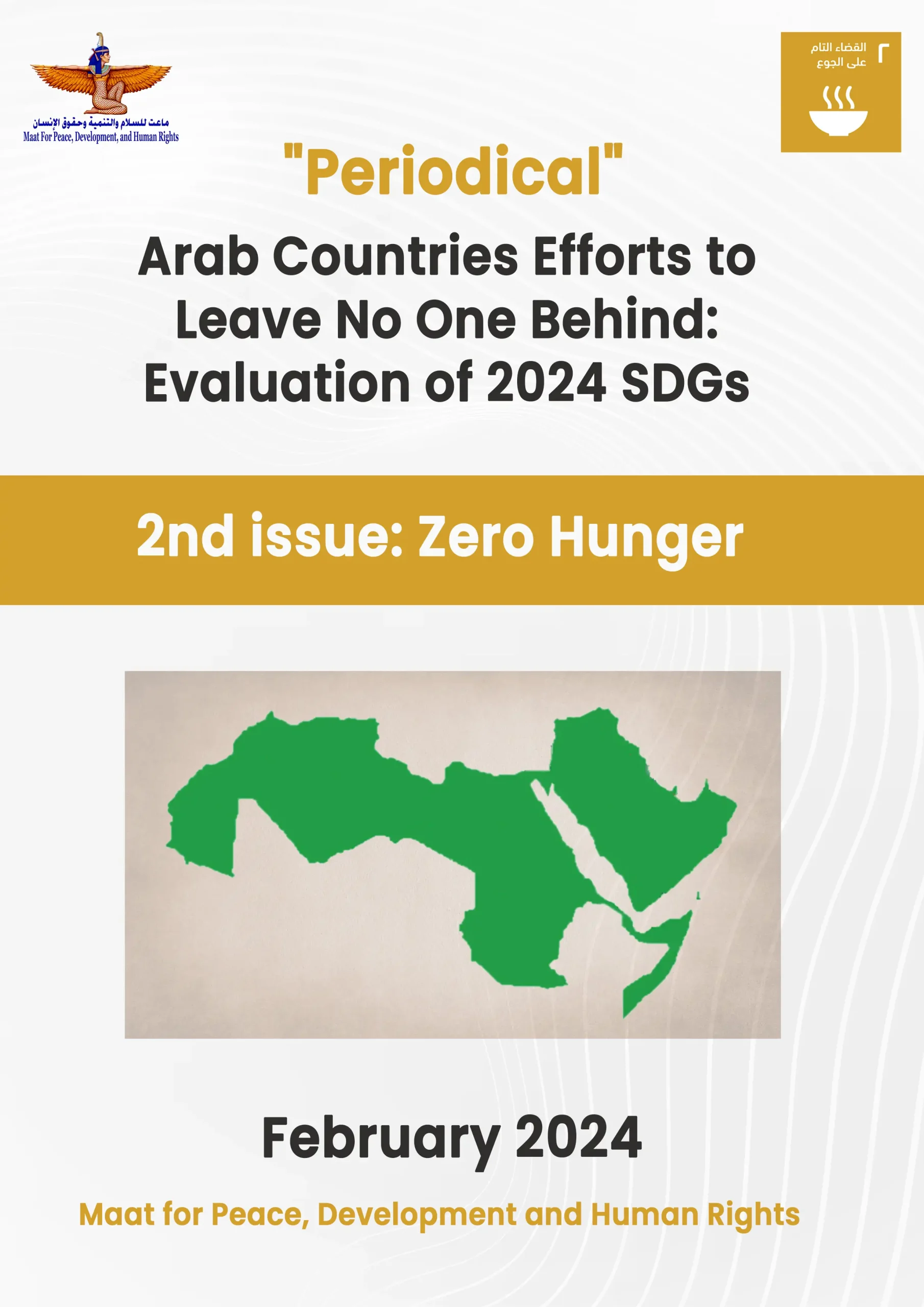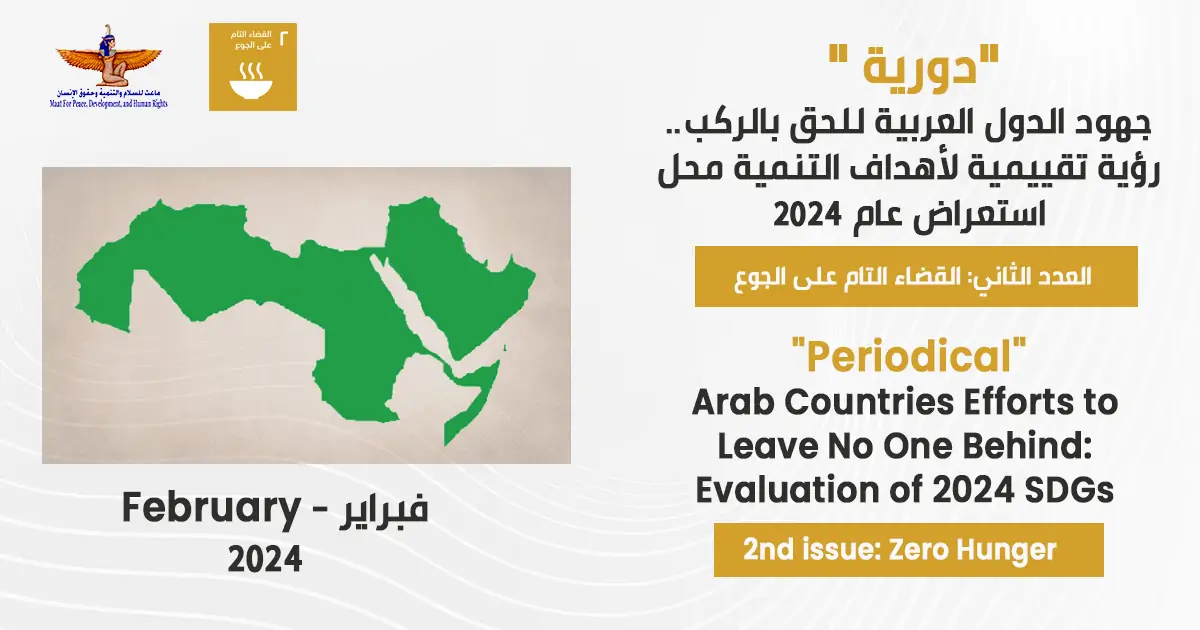Maat addresses food security in Arab region and confirms that Arab region will expectedly witness a dire humanitarian situation in 2024
Okeil: We call to open food supply crossings to Gaza and stop threatening food security of civilians
Huda: We recommend that Arab countries widely disseminate sustainability concepts and practices to provide new sources of food
Driven by its commitment to the Sustainable Development Goals (SDGs) and its ongoing participation in the UN High-level Political Forum, Maat for Peace, Development and Human Rights launches the second issue of its research periodical, “Efforts of Arab Countries to Catch Up: Evaluating Development Goals for 2024.”
This issue, titled "Food Security in Arab Region: A Gap Between Aspired Targets and Reality Indicators," sheds light on the state of hunger (SDG 2) across the Arab world. While the UN prioritized ending hunger in 2024 the reality is alarming. Low-income and least developed Arab countries face the worst hunger rates, with about a third of their population suffering. Conflict zones are even more dire, with undernutrition rates four times higher. A staggering 171 million people currently experience various levels of food insecurity.
Maat's forecast for 2024 paints a bleak picture. Ongoing conflicts, climate emergencies, and economic decline, particularly in the volatile Middle East and East Africa (Palestine and Sudan), threaten a humanitarian crisis. International support is falling short, and rising inflation is expected to exacerbate malnutrition and food shortages, potentially leading to loss of life.
Ayman Okeil, a human rights expert and Chairman of Maat, identified violence and armed conflict as the primary drivers of severe food insecurity in Arab countries, particularly hunger hotspots. He emphasized that prolonged conflicts have the most devastating impact. Okeil pointed to the Israeli occupation's use of hunger as a weapon against Gaza civilians, noting the tragic deaths of over 600,000 children in Rafah alone. Similarly, the Rapid Support Forces in Sudan are accused of deliberately heightening security risks and disrupting humanitarian aid, exposing nearly 5 million to critical hunger levels.
Okeil called for two key actions. First, he urged the opening of food supply crossings to Gaza and an end to civilian harm. Second, he recommended that Arab governments strengthen their agricultural food systems. These systems need to be more resilient to future shocks, efficient, comprehensive, and sustainable – all crucial factors in achieving the second Sustainable Development Goal.
Huda Emad, a researcher at Maat's Sustainable Development Unit, commended the Arab League's initiative to eradicate hunger in the region but stressed the need for further collaboration, especially with conflict-ridden countries facing resource depletion and import dependence. Gharib recommended large-scale dissemination of sustainable practices, exchange of successful experiences among governments, private sectors, and stakeholders, and the exploration of innovative solutions – leveraging modern technology to secure new food sources.

 |
 |
shortlink: https://maatpeace.org/en/?p=41698












